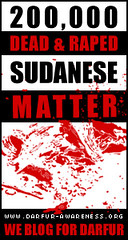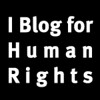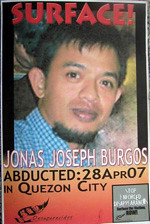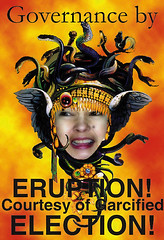TITO DOC, a tribute to Eddie del Rosario
TITO DOC. EDUARDO. EDDIE. EDONG. Dr. Eduardo R. del Rosario. Call him by any of these names. He is a person who is totally warm, friendly, generous and trusting. From his first hello, Eddie lights up “whenever two or three are gathered.” He is there when laughter fills the air. His presence sings and zings.
Festive occasions see him leading sing-alongs with his baritone and a borrowed guitar. Eddie’s humor bounces back and forth, left and right, all-around. Eddie is lively and deep conversation.
Eddie is the boy scout to camp-outs under the stars. Eddie is the beloved, most welcome Tito Doc to all the boys and girls of the clan. “Tito Doc! Tito Doc!”, they chant his name as a hero. Enjoying esteem, respect and love across all sections of society, he proves that a person’s true value is what he is and not what he has.
Eddie is number eight in our family sound-off. Among ten diverse personalities where humor and goodwill are common threads, Eddie was an easy stand-out. Born handsome, happy and healthy, he spent babyhood much loved and thanked for. My parents thought they would have only one boy after six girls. Eddie came as a second boy in a family that welcomes children with joy and generosity.
God gave Eddie a lot of gifts: at birth and to grow up with. He has intelligence and a keen interest in many things, great and small.
My father died when Eddie was not yet seven. He died gifted with the countless joys of a child’s wonderful deeds. For Eddie and us, my father left a lifetime of virtues and ideals to hold. Most of all, he cloned his sense of humor and bestowed this on Eddie. This, along with his faith, defined Eddie as he grew up.
In youth, Eddie was a natural leader. Drawing a lot of friends, he was class president, student council head, team leader, cheerleader, school paper writer, exam paper checker and undisputed hero of his peer group. He was an easy choice to sing, dance, act or recite poems in school programs.
It seemed Eddie could rise to any occasion --- or was expected to. Often, he did not fail these expectations. If he remained easy to like and live with, it was because he was Eddie. And he had a mother and nine brothers and sisters to shoot down pride and prejudice. He was no sacred cow or fair-haired boy at home. He was one among ten. He shared equal billing with all the rest.
Eddie grew up caring a lot for others and he cultivated his talents in this direction. If he had an artistic side --- playing classics with his violin, a flair for drawing and writing, a face that can emote on stage --- he also had both of his feet firmly standing on the ground. He was both dreamer and a realist. He was going to be a doctor. He was going to serve mankind. He was single-minded about this.
At the threshold of youth and holding a high school diploma, he had the guts and glory for this career. We all wanted Eddie to be a doctor. We cheered him for his decision. But we had not money.
My mother’s income as a high school teacher provided food and little else. Eddie was number eight. The seven others ahead of him also had their ambition to finish college. My mother’s brother, Tio Sebio and his wife Tia Fanny, were childless so they pitched in and sacrificed for our large family. For keeping our family together, these three heroic adults have earned their medals.
To help our mother, Tio Sebio and Tia Fanny, it had become the unwritten law that the one who finished ahead and had a job, helped to put the others through college. We did just that --- with honor and courage, with love and devotion to one another. I think this beautiful family tradition largely fostered the lasting unity and fondness we have for one another.
For Eddie, it was my Kuya Nick, a practicing dentist who worked long hours by the dental chair to provide Eddie his school expenses.
The arrangement was: Boyet Pugeda, one of Eddie’s best friends, would split his full year tuition with him. Kuya Nick then worked for Eddie’s tuition for the second semester and paid off Boyet. Eddie got a deal for deferred payment from UST. Talk about creative financing. Tio Sebio and Tia Fanny paid for his board and lodging.
A medical course is no laughing matter even if Eddie has lots of it to give away. But Eddie had decided to be a doctor, whatever it takes. Whatever it takes? By April 1958, he carried a pre-med degree. He needed another six years to be a full-fledged doctor. About this time too, he realized that the dwindling family finances could not make him stay on course.
In a leap of courage, he approached the rector of the UST College of Medicine and applied for a scholarship. He got his scholarship: discounted fees for tuition and textbooks, free board and lodging. He moved into the Dominican convent as a famulo and assistant infirmarian. He worked the different jobs asked of him.
With his friend Tony Garcia, he served lunch and dinner in the refectory every day. They served three Masses in the priests’ chapel every day. On Sunday, they served six Masses.
He took care of sick priests in the infirmary, which included sponging and cleaning them, giving them their medicines, even cutting their nails. It took great humility and, yes, a sense of humor, to take all these just to be a doctor.
For nearly four years, Eddie lived within the convent walls and already served like a doctor while trying to be a real doctor. He had plenty of practice. He passed with flying colors, both for himself and those he served, who grew to like him a lot. This was the other diploma he got upon graduation. Not gilded like the seal on the diploma for which he marched in formal toga in April 1964, but so much more meaningful, this other diploma armed him for the life of service that waited ahead.
With fellow graduates Bobby and Ludee del Rosario, he set up a modest clinic in the Ermita district. The clinic was close to the Malate apartment of my early married days. His patients included the children and family members of nightclub hostesses (mostly from the Bayside Club), as well as musicians, waiters, maintenance workers and janitors. Eddie was both doctor and counseling friend to them. He had the mettle to do well in both. The call of Vietnam and Operation Brotherhood ended this episode. But that is another story.
From his Ermita clinic, Eddie would often visit us often and join us for meals. He always ate with gusto. Marrying Belay, a Pampangueña whose family cooked well, made Eddie even more happy. As brother and sister, we were very close and open to each other’s needs. We shared family ideals. Even then, I admired Eddie’s preferential option for the poor. “This doctor will never become rich,” I said then. The words were not a prophecy, but they are true to this day.
At that time too, Rolly and I had become involved in the Christian Family Movement. Fr. Sean Connaughton, our chaplain, who also served as chaplain to the Christian Youth Movement, had asked our help for one of his boys. Roger was an art framer and wanted a break. We had a small store space in the corner-lot apartment which we were renting. We had a rainy days saving of two thousand pesos. We put this and Roger together. We had a business partnership.
Roger had hardly begun putting the partnership to work when Eddie noticed that he looked pale and bent even in his youth. Sure enough, Eddie found out that he had active TB. To protect us and Roger himself, he came every day and injected Roger with streptomycin till he was cured. We gave all the earnings of the fledgling business to Roger. Eddie saved Roger’s life and his future for a song.
In later years, Roger became very prosperous, both in health and material wealth. Eddie caught him at the right time, giving not only medicine but care, unwavering care. His Malate-Ermita practice was preparing him for larger horizons of service.
In Vietnam, he saw the ugly face of war and cried at his ugliness. He became the best-known scrounger of medical supplies for the Xuan Hoc Hospital in Long Khan province. He sought out displaced and battered lives in Chien Hoi prison camps, in orphanages, in hospitals. He looked into his patients’ eyes and gave them hope amid pounding mortar fire.
Because he had warmth, he gave warmth. Because he had faith, he gave faith. He helped cure body and soul, transcending colors, because all colors are beautiful in the eyes of God. Eddie was at his best when asked to give his all. Vietnam caught him at the height of his ideals.
Eddie stayed through the days and the nights of war. There was no time for fear. Through hamlets and villages, he and his fellow doctors and the support personnel of Operation World Freedom moved on, serving the suffering. Most cases were emergency. Quick judgments had to be accomplished by quick hands. Everything was a mad rush against death.
Eddie poignantly recalls a young victim of the Tet offensive. Deceived in the seemingly normal events before the Tet celebrations, the US military forces were caught unprepared for the horrors of the massacre. Days before, a lot of burials were happening. Inside those coffins were arms being brought into the city for the communist assault. The New Year celebration would provide perfect foil. With the sound of firecrackers ushering in the New Year came those of guns and rifles --- and death. This young boy was an early victim of gunfire.
There was no time to lose. Eddie cradled the boy in his arms. He laid the crying wounded boy on the operating table. Quickly he and a team of doctors worked to amputate the dangling leg of the boy. Eddie was crying all the while, seeing how the innocent suffer the evils of war. Both father and doctor in him was in pain. He never forgot the face of that boy and the memory of that night of terror.
From Vietnam and back again for a second stint, Eddie continued to help tirelessly: flood victims, earthquake victims, air crash victims, social justice victims, TB victims, human rights victims, drug abuse victims, sexually violated victims and today, persons with physical and mental disabilities.
This otherness has brought Eddie from Southeast Asia to the cold, perennial winter of remote Alaskan villages, administering public health services. At this time, he already had earned a master’s degree in public health from the Johns Hopkins University, again on scholarship.
He fostered understanding, friendship, humanity, and other common denominators of love. God has shaped Eddie’s very person for precisely this kind of work. And being in this kind of work, material well being or excess became a far, far second in his life.
His wealth is respect and good will from him to mankind and to him from mankind. Thus, people naturally gravitate to him, especially children. Eddie charms because he exudes so much cheerfulness. He lights up a place with his presence.
Eddie is also a good son. On a visit to our sick mother some years ago, he saw her suffering and immobile from a bad fall. He scooped her lovingly into my brother’s van, sped her to Manila and had her broken bone mended by surgery. This comforted my mother very much. She felt well quickly, more because of Eddie than the surgeon’s skill. Although he lived (and lives) in Guam, he was more accessible to her than some of us.
When my mother’s eyesight failed from bilateral cataract, we felt terrible when we saw her groping her way. Again, like lightning, Eddie contacted one of the best eye doctors of the country. Every weekend for many weekends (six in all), he flew in from Guam to assure my mother of his presence as she went through the required operations, which were successful. My mother was able to read again.
Socially, Eddie is a hit. He could have run and easily won a seat as Guam senator if he had the money. He writes and contributes features in both Guam and our local papers. He acts on stage and was Temyong in “Walang Sugat” in a Philippine Freedom Alay Gala in Guam. At 58, he can dance a mean boogie.
Eddie today has mellowed, but deepened in his commitment to God’s majority, especially in the field of human rights abuses in the sweatshops and entertainment business.
Now I realize why God made Eddie so likeable a person. His vocation is to serve, to serve the poor in body and spirit. Eddie goes on his way, poor in material thing, but very rich in spirit. People have given him awards and accolades, some awarded in Malacañang Palace. People are grateful for all his good deeds.
Eddie’s lifetime reward is the everyday, unquantifiable blessing of a peaceful and happy heart seen in his ever-smiling face. Eddie will die serving.
Call him Tito Doc. Eddie. Edong. Eduardo. Call him by any of these names. When he answers with a warm “Hello!”, he means, “I am here for you.”
By Poy R. Pantaleon
Sent via email by Dr. Rachel "Chee" Garcia
___________________________________________
SOURCE: Heartsong: A Selection of Writings from The Joy of Writing Workshops 1998
Edited by Monina Allrey Mercado
Edited by Monina Allrey Mercado
Published by Arts Unlimited and Friends in Art (1998)
This is a collection of familiar essays. Long and short, they were written as exercises in a writing workshop, called “The Joy of Writing.” Written from the heart as heartsong, these essays speak of persons well-loved and things familiar, of spouses and songs and daughters, of parents and friends, of talents and skills, of memories, of joy and pain, of beliefs and commitment, of faith and prayer.
The writers are mature women, most of them married. They look around them and within themselves to document and reflect on what had made them into the persons they are and what had touched their hearts. Primed by writing in their daily journals, they bring to their essays their essential honesty and simplicity.
Included in this collection are some haiku verses. These were inspired by the gist of the writing workshop which is to use short simple words while writing from the heart.
The essays and poems in this book were written in 1998 by the women who took part in any one of the three writing workshops which took place from April to November in Makati, Alabang and Los Baños.
This is a collection of familiar essays. Long and short, they were written as exercises in a writing workshop, called “The Joy of Writing.” Written from the heart as heartsong, these essays speak of persons well-loved and things familiar, of spouses and songs and daughters, of parents and friends, of talents and skills, of memories, of joy and pain, of beliefs and commitment, of faith and prayer.
The writers are mature women, most of them married. They look around them and within themselves to document and reflect on what had made them into the persons they are and what had touched their hearts. Primed by writing in their daily journals, they bring to their essays their essential honesty and simplicity.
Included in this collection are some haiku verses. These were inspired by the gist of the writing workshop which is to use short simple words while writing from the heart.
The essays and poems in this book were written in 1998 by the women who took part in any one of the three writing workshops which took place from April to November in Makati, Alabang and Los Baños.

POGB will not sell, exchange, use or allow any 3rd party access to your email for
any other purposes without exception, email exclusively for article updates only.
























1 Speak Out:
It is always a tragedy to belatedly know a great human being after he is gone. Ka Edong would be missed albeit not with pain but with pride and joy for the great values he passionately lived by in his most ordinarily extraordinary ways.
Once more, GOOD SPEED, Ka Edong!
Post a Comment